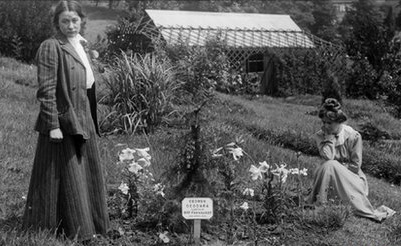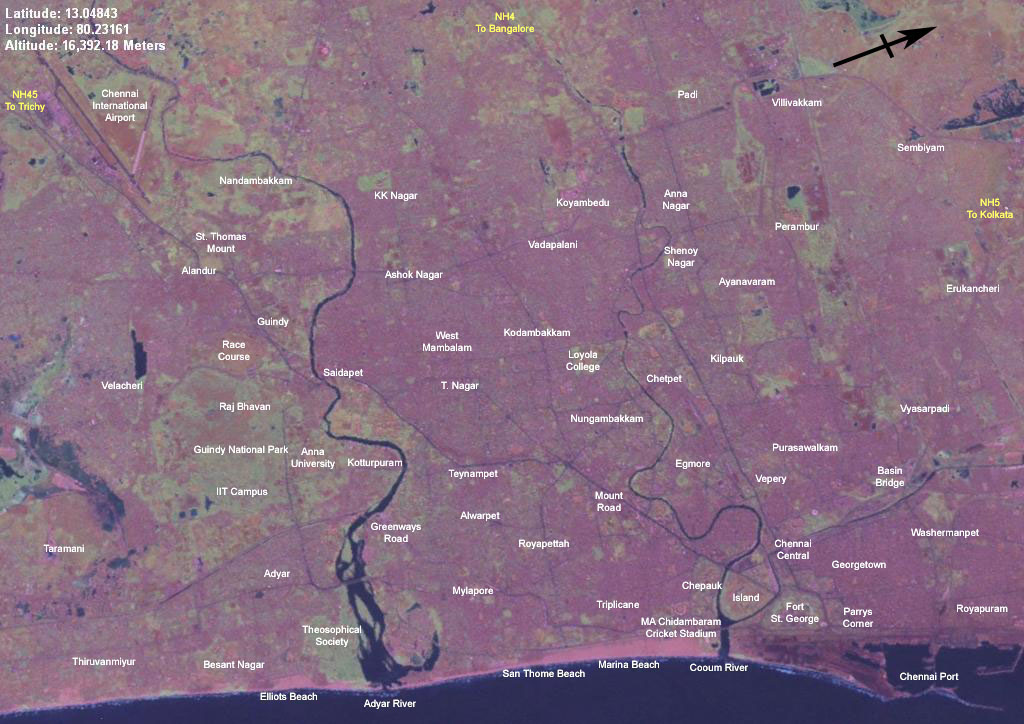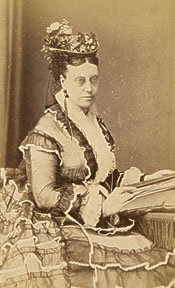|
Clara Codd
Clara Margaret Codd (10 October 1876 – 3 April 1971) was a British writer, suffragette, socialist feminist, and theosophist. She went to jail for the suffragettes and then devoted her life to the Theosophical Society. Life Codd was born in Bishops Tawton at Pill House in 1876. She was the first child of Henry Frederick Codd and Clara Virginia (née Botto) Codd. She had nine siblings and she was taught at home by a fair number of governesses. At the age of fifteen she became an atheist. After her father's death the family moved to Geneva where Codd herself worked as a governess, a costume model and she travelled to play the violin and piano. She was converted to Theosophy after hearing the first President of the Theosophical Society, Henry Steel Olcott, give a talk in Geneva.Heloise Brown, "Codd, Clara Margaret (1876–1971)", ''Oxford Dictionary of National Biography'', Oxford University Press, 2004; online edn, September 201accessed 30 October 2017/ref> Codd planting tre ... [...More Info...] [...Related Items...] OR: [Wikipedia] [Google] [Baidu] |
Bishops Tawton
Bishop's Tawton is a village and civil parish in the North Devon district of Devon, England. It is in the valley of the River Taw, about three miles south of Barnstaple. According to the 2001 census the parish had a population of 1,176. Description The spire of Church of St John the Baptist, Bishop's Tawton, St John the Baptist church in the village is 14th century. Within the church, the baptismal font is Norman architecture, Norman and there survive several mural monuments to the Chichester family of Hall, Bishop's Tawton, Hall. Several sources dating from the 16th and 17th centuries record that the see of the first bishop for Devon (a diocese created by dividing the Diocese of Sherborne in the early 10th century) was at Tawton (later named Bishop's Tawton) in 905, though certainly by 909 the see was at Crediton. (In 1050 the see moved to Exeter.) Any link between a possible 10th-century former bishop's church/cathedral and the extant Church of St John the Baptist, Bishop' ... [...More Info...] [...Related Items...] OR: [Wikipedia] [Google] [Baidu] |
Annie Kenney
Ann "Annie" Kenney (13 September 1879 – 9 July 1953) was an English working-class suffragette and socialist feminist who became a leading figure in the Women's Social and Political Union. She co-founded its first branch in London with Minnie Baldock. Kenney attracted the attention of the press and public in 1905 when she and Christabel Pankhurst were imprisoned for several days for assault and obstruction related to the questioning of Sir Edward Grey at a Liberal rally in Manchester on the issue of votes for women. The incident is credited with inaugurating a new phase in the struggle for women's suffrage in the UK with the adoption of militant tactics. Annie had friendships with Emmeline Pethick-Lawrence, Baroness Pethick-Lawrence, Mary Blathwayt, Clara Codd, Adela Pankhurst, and Christabel Pankhurst. Early life Kenney was born in 1879 in Springhead, West Riding of Yorkshire., to Horatio Nelson Kenney (1849–1912) and Anne Wood (1852–1905). She was the fourth daughter in ... [...More Info...] [...Related Items...] OR: [Wikipedia] [Google] [Baidu] |
British Theosophists
British may refer to: Peoples, culture, and language * British people, nationals or natives of the United Kingdom, British Overseas Territories, and Crown Dependencies. ** Britishness, the British identity and common culture * British English, the English language as spoken and written in the United Kingdom or, more broadly, throughout the British Isles * Celtic Britons, an ancient ethno-linguistic group * Brittonic languages, a branch of the Insular Celtic language family (formerly called British) ** Common Brittonic, an ancient language Other uses *''Brit(ish)'', a 2018 memoir by Afua Hirsch *People or things associated with: ** Great Britain, an island ** United Kingdom, a sovereign state ** Kingdom of Great Britain (1707–1800) ** United Kingdom of Great Britain and Ireland (1801–1922) See also * Terminology of the British Isles * Alternative names for the British * English (other) * Britannic (other) * British Isles * Brit (other) * Briton (d ... [...More Info...] [...Related Items...] OR: [Wikipedia] [Google] [Baidu] |
People From North Devon (district)
A person (plural, : people) is a being that has certain capacities or attributes such as reason, morality, consciousness or self-consciousness, and being a part of a culturally established form of social relations such as kinship, ownership of property, or legal obligation, legal responsibility. The defining features of personhood and, consequently, what makes a person count as a person, differ widely among cultures and contexts. In addition to the question of personhood, of what makes a being count as a person to begin with, there are further questions about personal identity and self: both about what makes any particular person that particular person instead of another, and about what makes a person at one time the same person as they were or will be at another time despite any intervening changes. The plural form "people" is often used to refer to an entire nation or ethnic group (as in "a people"), and this was the original meaning of the word; it subsequently acquired its us ... [...More Info...] [...Related Items...] OR: [Wikipedia] [Google] [Baidu] |
1971 Deaths
* The year 1971 had three partial solar eclipses (February 25, July 22 and August 20) and two total lunar eclipses (February 10, and August 6). The world population increased by 2.1% this year, the highest increase in history. Events January * January 2 – 66 people are killed and over 200 injured during a crush in Glasgow, Scotland. * January 5 – The first ever One Day International cricket match is played between Australia and England at the Melbourne Cricket Ground. * January 8 – Tupamaros kidnap Geoffrey Jackson, British ambassador to Uruguay, in Montevideo, keeping him captive until September. * January 9 – Uruguayan president Jorge Pacheco Areco demands emergency powers for 90 days due to kidnappings, and receives them the next day. * January 12 – The landmark United States television sitcom ''All in the Family'', starring Carroll O'Connor as Archie Bunker, debuts on CBS. * January 14 – Seventy Brazilian political prisoners are rel ... [...More Info...] [...Related Items...] OR: [Wikipedia] [Google] [Baidu] |
1876 Births
Events January–March * January 1 ** The Reichsbank opens in Berlin. ** The Bass Brewery Red Triangle becomes the world's first registered trademark symbol. * February 2 – The National League of Professional Base Ball Clubs is formed at a meeting in Chicago; it replaces the National Association of Professional Base Ball Players. Morgan Bulkeley of the Hartford Dark Blues is selected as the league's first president. * February 2 – Third Carlist War – Battle of Montejurra: The new commander General Fernando Primo de Rivera marches on the remaining Carlist stronghold at Estella, where he meets a force of about 1,600 men under General Carlos Calderón, at nearby Montejurra. After a courageous and costly defence, Calderón is forced to withdraw. * February 14 – Alexander Graham Bell applies for a patent for the telephone, as does Elisha Gray. * February 19 – Third Carlist War: Government troops under General Primo de Rivera drive throu ... [...More Info...] [...Related Items...] OR: [Wikipedia] [Google] [Baidu] |
Adyar, Chennai
Adyar is a large neighbourhood in south Chennai, Tamil Nadu, India. It is located on the southern banks of the Adyar River. It is surrounded by the Tharamani in the West, Tiruvanmiyur, Thiruvanmiyur to the South, Besant Nagar in the East, Kotturpuram in the North-West and Raja Annamalaipuram, Raja Annamalai puram in the North past the Adyar River . Adyar is one of the costliest areas in Chennai with property values four times the value of similar sized properties in the northern part of Chennai. The Gandhi Nagar region of Adyar is one of the poshest localities in Chennai. History Etymology The neighbourhood gets its name from the Adyar River, which flows through its northern limits. The term ''Adyar'' is the anglicized form of the Tamil word ''aḍai-ārŭ'' ( ''clogged-river''), which is colloquially just pronounced as ''aḍayār''. British India Adyar and the neighbouring Guindy had been used as hunting grounds by British officials of Fort St. George from the 1680s ... [...More Info...] [...Related Items...] OR: [Wikipedia] [Google] [Baidu] |
Flora Drummond
Flora McKinnon Drummond (née Gibson) (born 4 August 1878, Manchester – died 17 January 1949, Carradale), was a British suffragette. Nicknamed 'The General' for her habit of leading Women's Rights marches wearing a military style uniform 'with an officers cap and epaulettes'Sylvia Pankhurst cited in: and riding on a large horse, Drummond was an organiser for the Women's Social and Political Union (WSPU) and was imprisoned nine times for her activism in the Women's Suffrage movement. Drummond's main political activity was organising and leading rallies, marches and demonstrations. She was an accomplished orator and had a reputation for being able to put down hecklers with ease. Early life Flora McKinnon Gibson was born on 4 August 1878 in Manchester to Sarah (née Cook) and Francis Gibson. Her father was a tailor and whilst Flora was still a small child the family moved to Pirnmill on the Isle of Arran, where her mother had her roots. On leaving high-school at the age of fou ... [...More Info...] [...Related Items...] OR: [Wikipedia] [Google] [Baidu] |
Emmeline Pankhurst
Emmeline Pankhurst ('' née'' Goulden; 15 July 1858 – 14 June 1928) was an English political activist who organised the UK suffragette movement and helped women win the right to vote. In 1999, ''Time'' named her as one of the 100 Most Important People of the 20th Century, stating that "she shaped an idea of objects for our time" and "shook society into a new pattern from which there could be no going back". She was widely criticised for her militant tactics, and historians disagree about their effectiveness, but her work is recognised as a crucial element in achieving women's suffrage in the United Kingdom. Born in the Moss Side district of Manchester to politically active parents, Pankhurst was introduced at the age of 14 to the women's suffrage movement. She founded and became involved with the Women's Franchise League, which advocated suffrage for both married and unmarried women. When that organisation broke apart, she tried to join the left-leaning Independent Labour P ... [...More Info...] [...Related Items...] OR: [Wikipedia] [Google] [Baidu] |
House Of Commons
The House of Commons is the name for the elected lower house of the bicameral parliaments of the United Kingdom and Canada. In both of these countries, the Commons holds much more legislative power than the nominally upper house of parliament. The leader of the majority party in the House of Commons by convention becomes the prime minister. Other parliaments have also had a lower house called a "House of Commons". History and naming The House of Commons of the Kingdom of England evolved from an undivided parliament to serve as the voice of the tax-paying subjects of the counties and of the boroughs. Knights of the shire, elected from each county, were usually landowners, while the borough members were often from the merchant classes. These members represented subjects of the Crown who were not Lords Temporal or Spiritual, who themselves sat in the House of Lords. The House of Commons gained its name because it represented communities (''communes''). Since the 19th century, ... [...More Info...] [...Related Items...] OR: [Wikipedia] [Google] [Baidu] |
Eagle House (suffragette's Rest)
Eagle House is a Grade II* listed building in Batheaston, Somerset, near Bath. Before World War I the house had extensive grounds. When Emily Blathwayt and her husband Colonel Linley Blathwayt owned the house, its summerhouse was used, from 1909 to 1912, as a refuge for suffragettes who had been released from prison after hunger strikes. It became known as the Suffragette's Rest or Suffragette's Retreat. Emily Blathwayt was a suffragette and member of the Women's Social and Political Union. Between April 1909 and July 1911, trees were planted in the grounds to commemorate individual suffragettes; at least 47 were planted in a two-acre (8094 m2) site. Known as Annie's Arboretum, after Annie Kenney, the trees were destroyed in the 1960s when a council estate was built. Only one tree, an Australian Pine planted in 1909 by Rose Lamartine Yates, remains. Architecture and history The two-storey bath stone house has ashlar quoins and a slate roof. There is an ionic doorcase with ... [...More Info...] [...Related Items...] OR: [Wikipedia] [Google] [Baidu] |

_1938.jpg)



.jpg)


